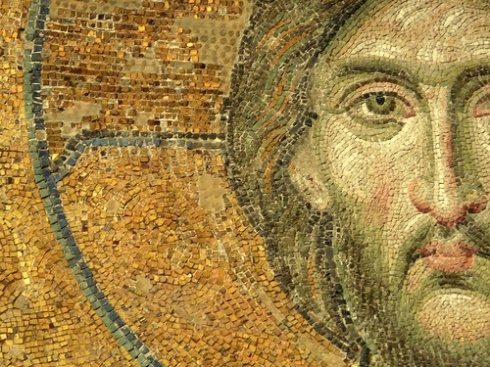 Yesterday we started looking at what the Gospel is. Today we continue by looking at how we have reduced the Gospel to salvation only, and a wrong theology of salvation at that.
Yesterday we started looking at what the Gospel is. Today we continue by looking at how we have reduced the Gospel to salvation only, and a wrong theology of salvation at that.
Our faith has been reduced to an escapist fire insurance that has nothing more to say to the issues that face the ordinary person in the street. When it is all about going to heaven when you die, there is no ultimate concern with issues of justice, caring for the environment, and politics. Too many Christians still believe that “helping the poor is good but if they’re all going to end up in hell, what is the point? Surely the most important thing is to secure their eternal destiny. That is what really matters in the end. The other stuff is just temporary.”
The problem with this type of thinking is that it is just not biblical. And because the Bible reveals a God who addresses every aspect of life, this type of thinking can also lead to tragic consequences. Take the case of Rwanda. At the time of the 1994 genocide, this central African country was 94% Christian. So how could a country where almost everyone identifies as Christian let 800 thousand of its people be butchered in a matter of a few months? The reasons are complex, but research and interviews conducted there reveal that part of the reason is that the messages coming from the pulpits of Rwanda’s churches was largely about the afterlife. It had nothing to say to the issues facing the population in the here and now.
In our Western culture we might not think that such a theology makes much of a difference to our lives. But, to use an analogy, if you have a rocket that is headed for the moon, and that rocket lifts off with a trajectory that is only fractionally off course, by the time it is supposed to reach the moon, it will have missed its target by hundreds of thousands of miles.
It is crucial that our theology is thoroughly biblical. Recently, The Christian Century ran a piece that asked various well-known Christian leaders to describe the Gospel in seven words. The piece was picked up by Scot McKnight over at Jesus Creed. McKnight pointed out that every response given showed an interpretation of the Gospel that was based only on God’s love and on salvation – what McKnight calls a ‘soterian Gospel.’ The word ‘soterian’ pertains to the knowledge of salvation.
A Gospel that has salvation – including an eternal destiny of heaven when we die – as its end is a deficient Gospel. It is not what Jesus lived and taught, and it is not what the early church preached. McKnight points out that not one of the apostolic sermons in Acts (Read the sermons in Acts 2, 3, 4, 10-11, 13, 14, and 17) focuses on God’s love or on salvation. What they focus on is Jesus as Lord. They are all about Jesus. This is of course not to say that the Gospel is not about the amazing grace of God and that Jesus died for our sins – the righteous for the unrighteous – but it is to say that that is not all there is to it.
The human soul is restless without God. It is not satisfied to know that it is saved alone. That of course provides great comfort and an anchor on which to base our lives, but it doesn’t end there. The fact is that humanity is wired to create. We are made in the image of a wonderful Creator and our vocation is to continue to co-create with Him for all eternity. And because of the life, death and resurrection of Jesus, that vocation to co-create with God has already started.
Tomorrow we will conclude by looking at eternal life really is and seeing if we can come up with our own descriptions of the Gospel in seven words.




0 Comments
1 Pingback